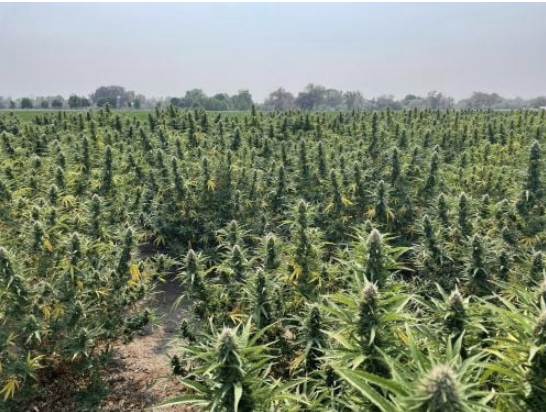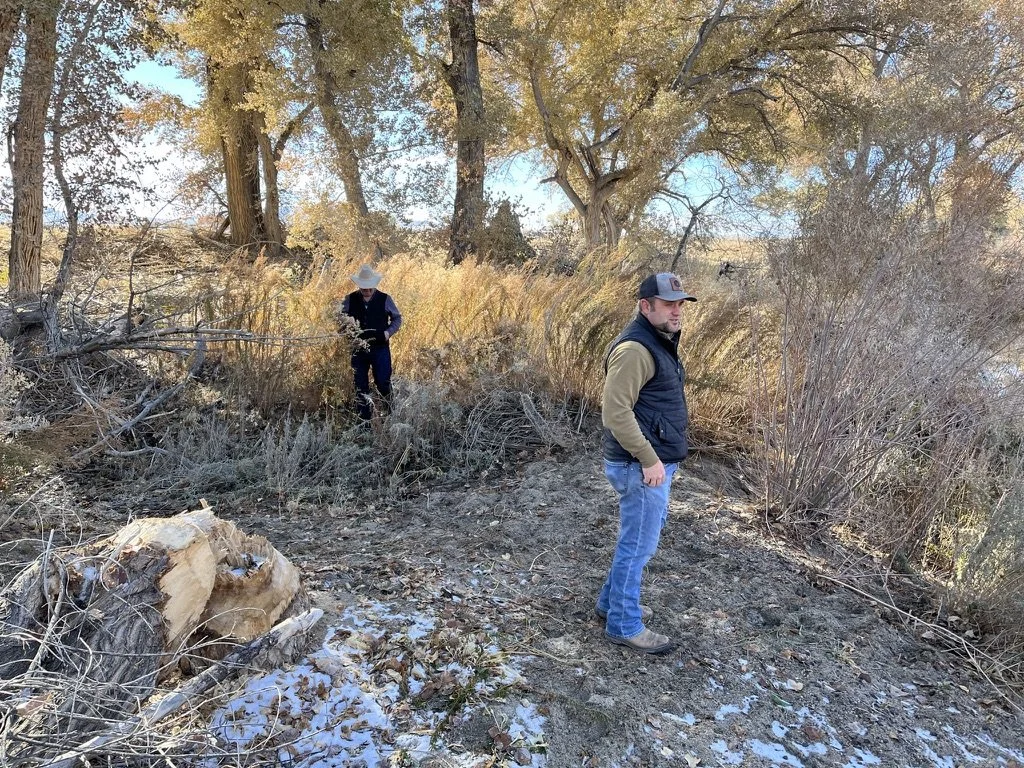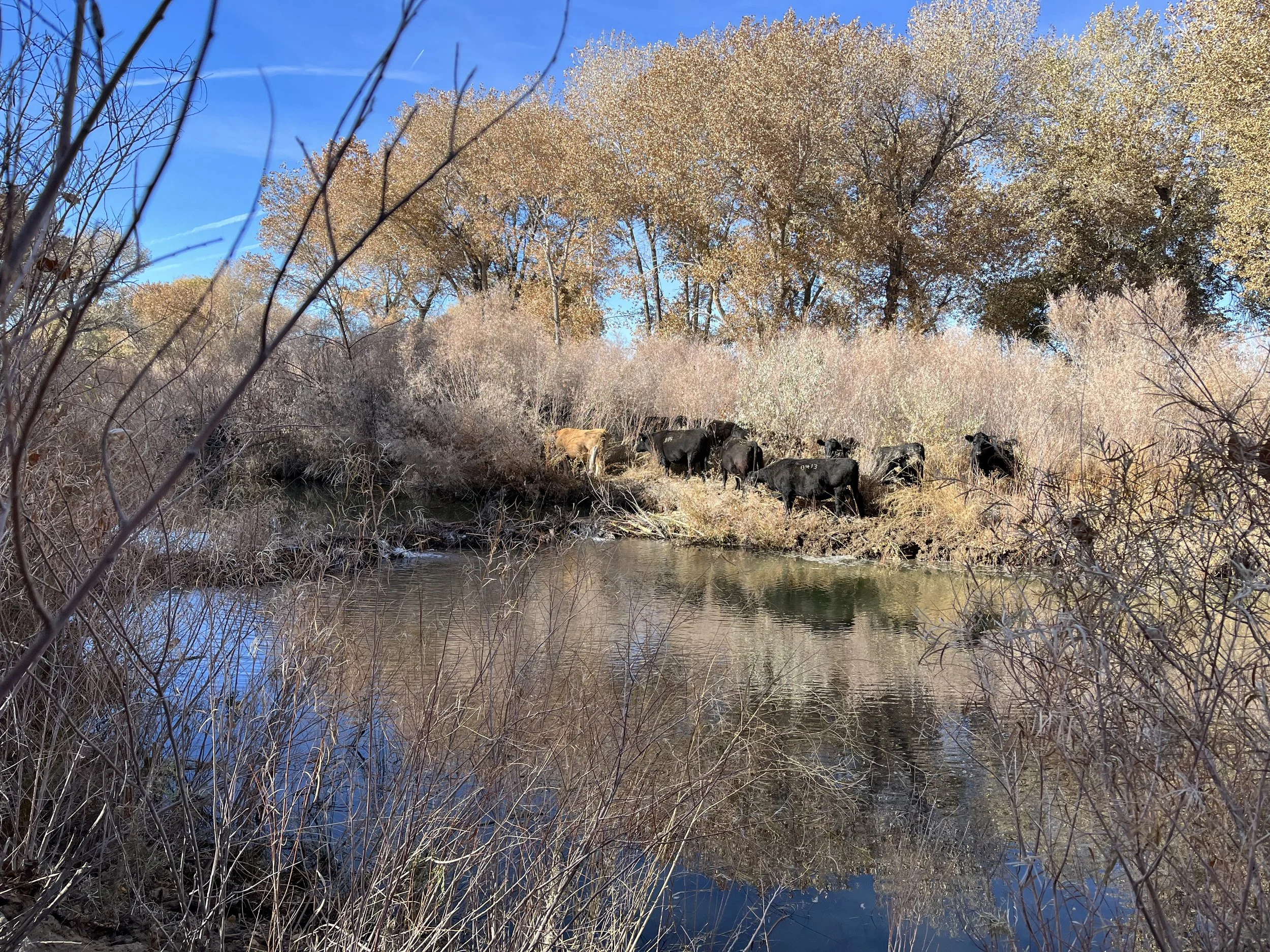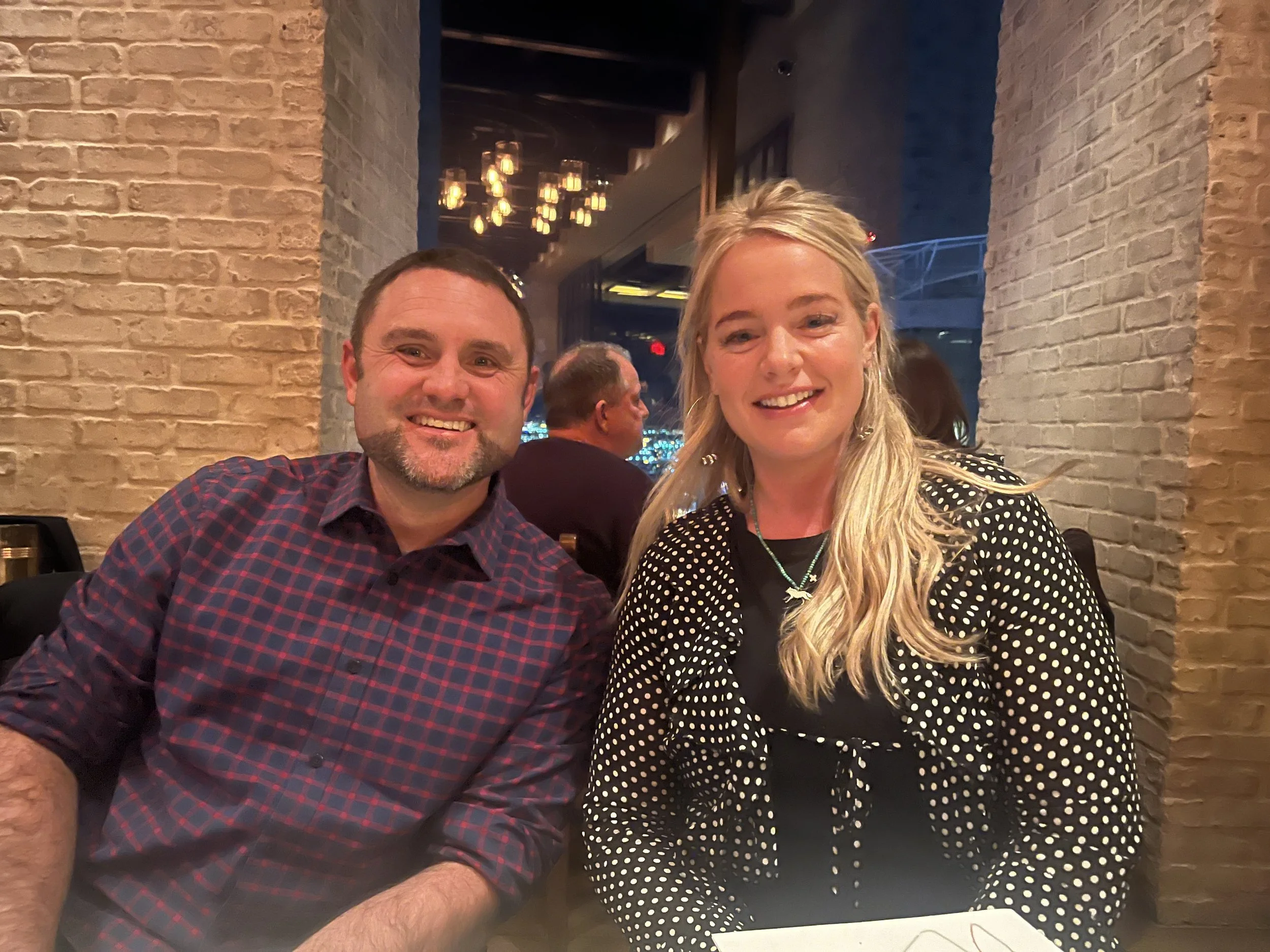From Loving the Land to Reverence as an Economic Model — Meet Joe Frey
by Andrea & Tony Malmberg
The EOV monitoring crew at Rambling River Ranches
As we ventured through the last leg of our autumn road trip a few years back, we made our way to the heart of Nevada. Amidst the rugged landscapes and sun-kissed plains, we met Joe Frey, one of UVE's land stewards using Ecological Outcome Verification (EOV), to, as he said, "get off the drugs of industrial agriculture." His place in Fallon, Nevada, was on our way home, and we thought it would be fun to meet someone in person, on their land, instead of Zoom, which we’d been on for what felt like an eternity. This is Joe’s story of stopping the use of industrial agriculture inputs while increasing profits.
Little did we know that Joe stands as a beacon of regenerative agriculture practices. As the owner of Western States Hemp and Rambling River Ranches and a key figure in the Nevada Regional Hemp project with the University of Nevada, Reno, Frey's commitment to the land is reshaping the agricultural landscape of the Silver State.
Born and raised in Nevada, Joe Frey developed a deep connection to the land from an early age. His upbringing instilled in him a profound respect for nature and a keen understanding of the delicate balance required to steward the land responsibly. This yearning for connection can be witnessed as Joe pauses, takes off his shoes and socks, and caresses the earth with his toes. Joe prefers to feel the Ecosystem through the pores of his feet.
After years of working in various sectors, including renewable energy and sustainable development, Frey found his true calling in regenerative agriculture.
Fun with Hemp
As is the case with most true callings, it takes pain to wipe away the cobwebs of our traditions that are holding us back. A drought starting in 2014-15 brought the pain. Frey's journey into regenerative agriculture began with Western States Hemp, a pioneering venture focused on hemp cultivation using environmentally friendly practices. With its myriad uses ranging from textiles to food products to calming agents for horses, hemp has garnered significant attention for its potential as a sustainable crop.
Fun with hemp led to a conference with Ray Archelletta in 2019, bringing new stuff for new interests beyond commercial values. Joe saw hemp as a catalyst for regenerative agriculture, capable of revitalizing depleted soils and restoring the land. Archelletta sparked curiosity that led him to a Soil Health Academy conference and more “ah ha’s” in 2020.
Coming out of the drought in 2018, brought a stark realization — torrential rains and floods washed depleted dirt down the river. As he watched his ground wash away, he faced a cash flow calling for $1.3 million to fund his conventional practice of ripping, disking, leveling, seeding, fertilizing, spraying, and harvesting his eroded fields. Realizing he only had $200,000 to budget simply sucked the air out of him.
Exploring the work of the great engineers (beaver) of the mighty Carson River.
While a scarcity mindset is prevalent in agriculture, Joe is anything but a victim. Whether it be the weather or markets hitting his operation hard, he finds an abundance mindset by listening to the land. Buoyed by Archelletta and Gabe Brown’s testimony, Joe scouted for profits from a different angle. Joe’s business partner, Adrienne Snow, encouraged Joe to call Abbey, with UVE, who introduced him to Jackie and EOV monitoring. Another piece of the puzzle came into place. After three days of monitoring and deep conversations, Jackie and Joe framed the data into a narrative of the ecological state of the land. The starting point to regeneration, they determined, was to begin building soil.
Joe stopped throwing metal and sulphuric acid at the ground. He bought a no-till drill and ‘Joker,’ minimizing tillage and bringing in new observations. He stopped ripping, disking, and leveling, (a cost of $100 per acre) while substituting one pass with a Joker (high-speed disk at a cost of $10 per acre), a $90 per acre reduction in costs. By eliminating chemicals, he clawed back another $100 per acre, and his bottom line went from a profit of $207.00 to $232.50 per acre. More profit with less cash outlay might be good enough for many, but Joe now had data, and the soil was reaching for Joe’s toes, asking for more.
Cattle, beaver dams, forage, & willows
Fast forward to 2024 and lower alfalfa/hay prices. Empowered through UVE’s Holistic Financial Planning course, once again, Joe shunned the easy escape of victimhood and developed a path to continue building soil. What initially looked like a year of doom, Joe saw a good marginal reaction for low-value forage as “an offering to build his soil.” He plans to park the gas-guzzling and depreciable swather. Instead, he will gather cattle to harvest the forage, and fertilize the ground. He plans to follow up with a second and, in some cases, a third cutting, for the higher-margin specialty markets.
This shift came from a fundamental change in thinking from “gross return” to “net return.” Joe continues working to grasp the costs and nets of the increased complexity of integrating grazing, as it’s hard to put a value on the capital gain of building soil. At first blush, it appears a $60 per acre cost to get the hay in a bale would leave a net of $30 / acre, while grazing and a specialty hay market will return $75 / acre. As Joe says, “This just might be the least costly year to invest in the land.”
Holistic Management will not tolerate blame, shame or being a victim, as it asks, “How must I behave,” which gets our face out of the dirt and allows us to feel the earth with our toes. Hard times can bring knowledge, experience, and refined skills. Joe actively looks for the lessons that help him show not only love for the land but also reverence.
At Rambling River Ranches, Frey applies regenerative principles to hemp cultivation, crop, and livestock production. Through Holistic Planned Grazing and the integration of cover crops, Frey is transforming his ranches into thriving environments that support biodiversity and soil health. By mimicking natural processes and working with the land rather than against it, Frey has demonstrated that agriculture can be both productive and restorative.
Guiding the next generation toward reverence
Frey's vision extends beyond his own operations. Through collaborations with academic institutions like the University of Nevada, Reno, he is actively involved in research and education initiatives aimed at advancing regenerative agriculture practices. The Nevada Regional Hemp project, a partnership between Frey and the university, serves as a hub for research into hemp cultivation techniques, soil health improvement, and the development of sustainable farming methods suitable for Nevada's unique climate and terrain.
Central to Frey's approach is community engagement, and knowledge sharing. He regularly hosts workshops, seminars, and farm tours to educate fellow farmers, students, and the wider community about his journey, and what he has learned. By fostering a culture of collaboration and learning, Frey is sowing the seeds for a flourishing future in Nevada and beyond.
Joe with Cate Havestad Casad preparing for sharing their data.
Joe consistently is a giver to UVE. Western States Hemp was the lead sponsor of the tuition and expenses for Jackie to attend Create. Without hesitation, he came in person to vulnerably share his ecological monitoring data with the Intertribal Agriculture Council’s Natural Resources Program Specialists. Anytime he shows up for an UVE course, his engagement, humor, and thoughtfulness takes everyone’s learning to the next level.
As we grapple with the challenges of climate change, water scarcity, and land degradation, Joe Frey's holistic approach to agriculture offers hope. Through his tireless dedication to regenerative principles and his unwavering reverence for the land, Frey is proving that agriculture can be a force for positive change, nurturing both the Earth and the communities that depend on it. In Joe Frey, we have a visionary leader, guiding the way toward a more resilient future for agriculture. If in doubt, see Joe’s toes smiling.
Andrea & Tony Malmberg are Savory Master Field Professional and Andrea also serves as a Holder with UVE







